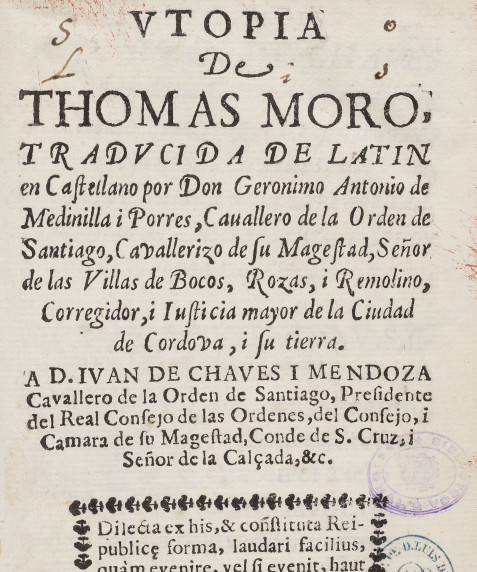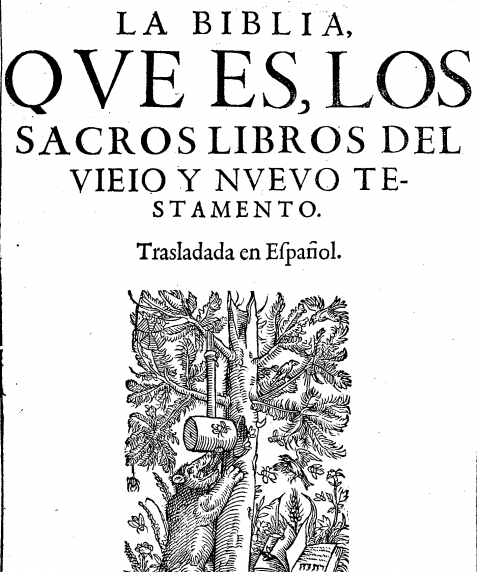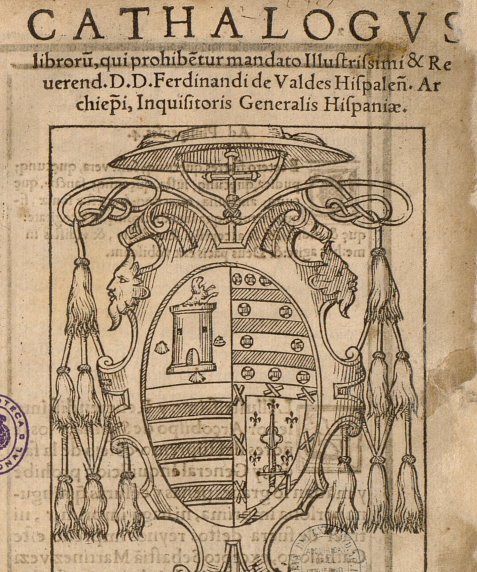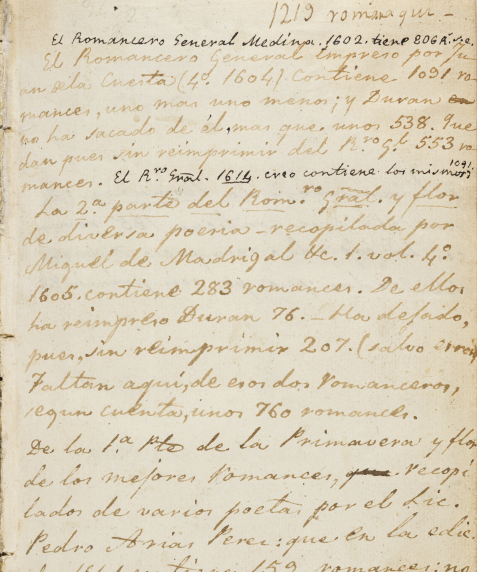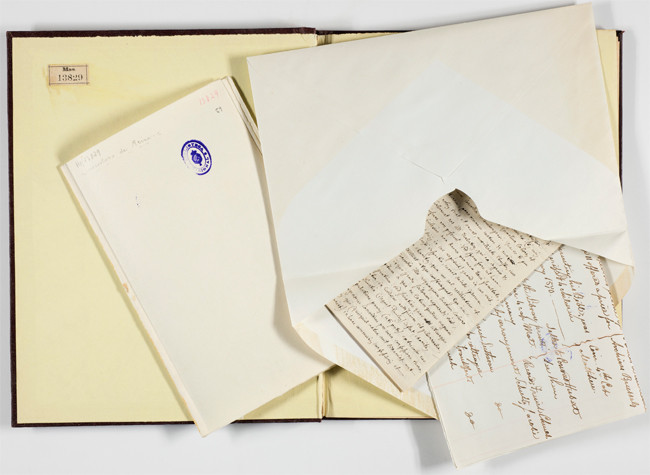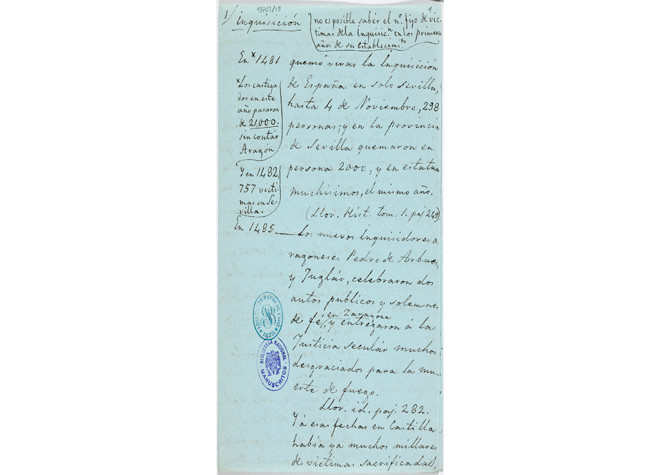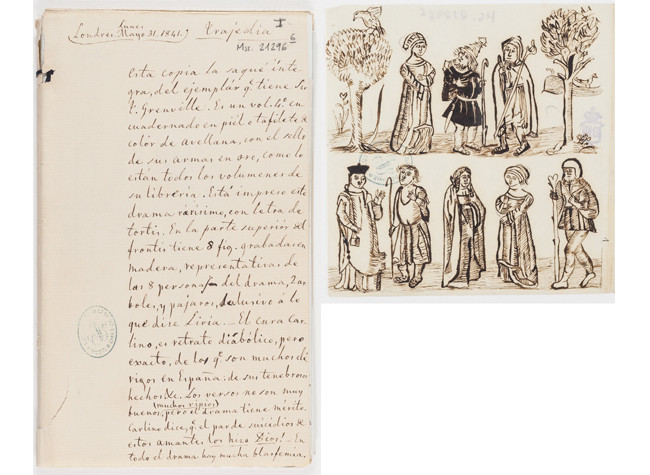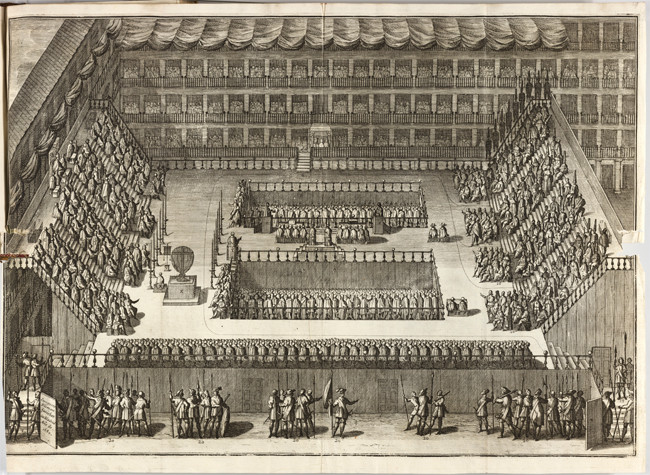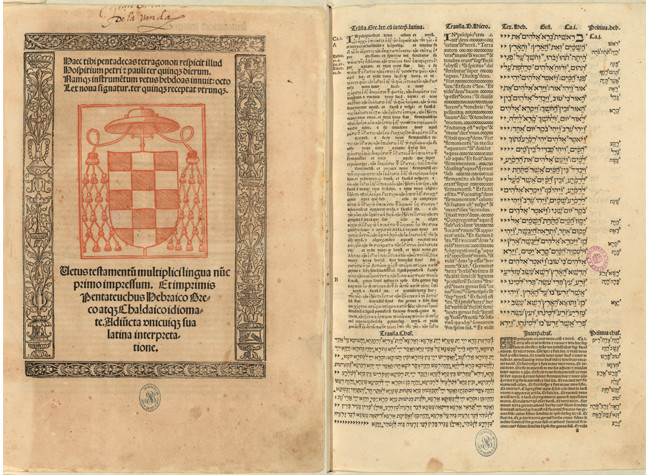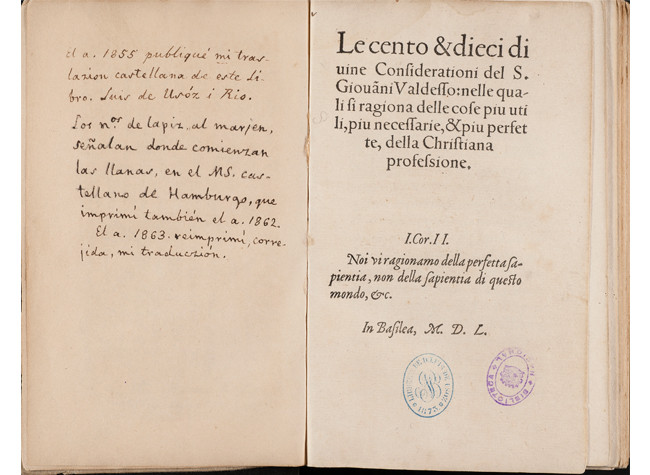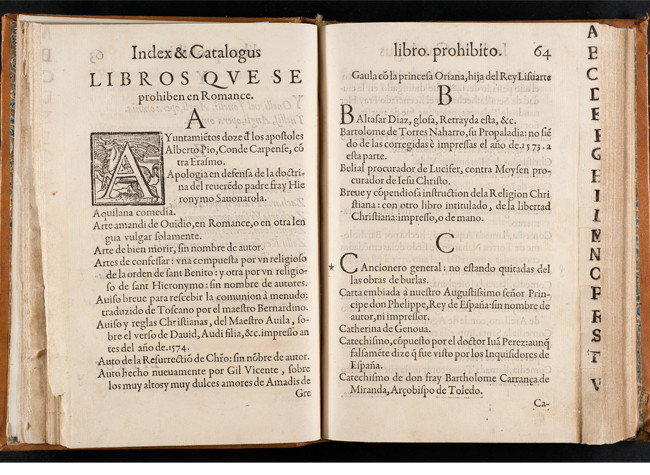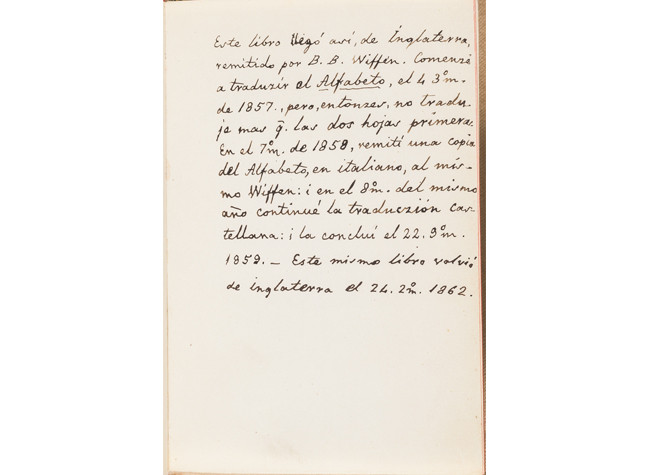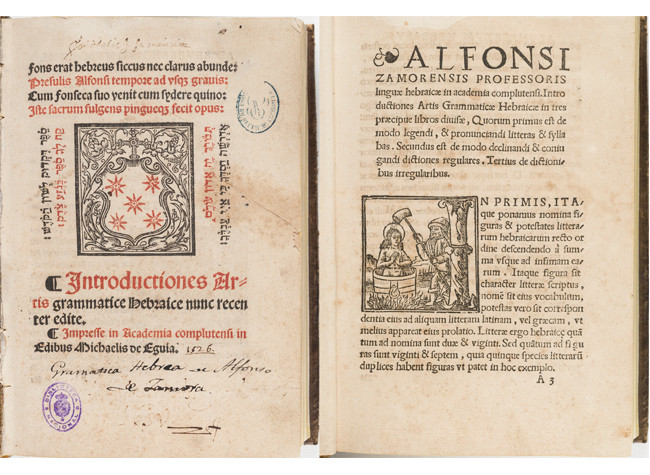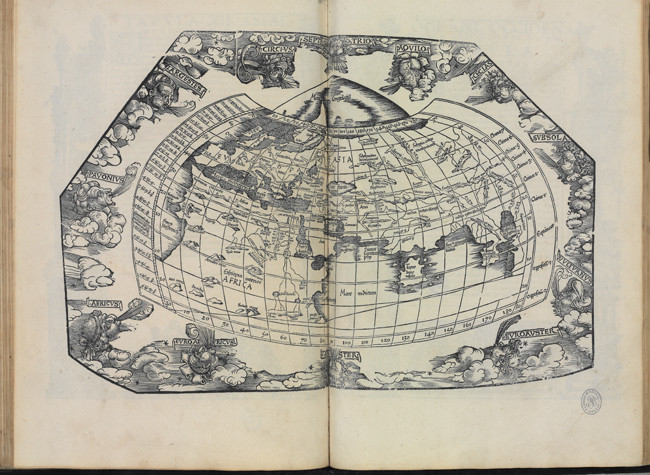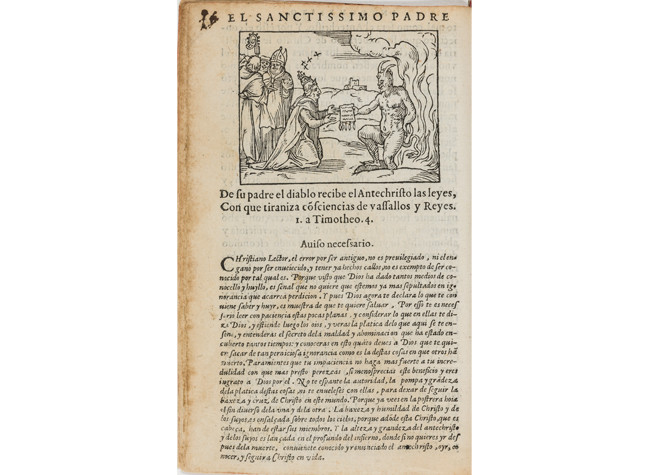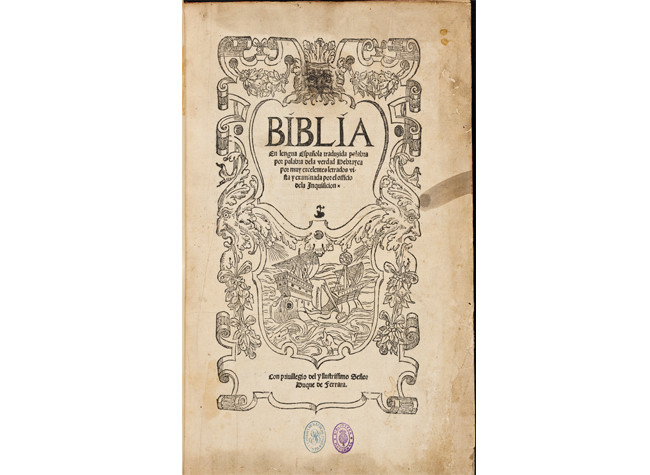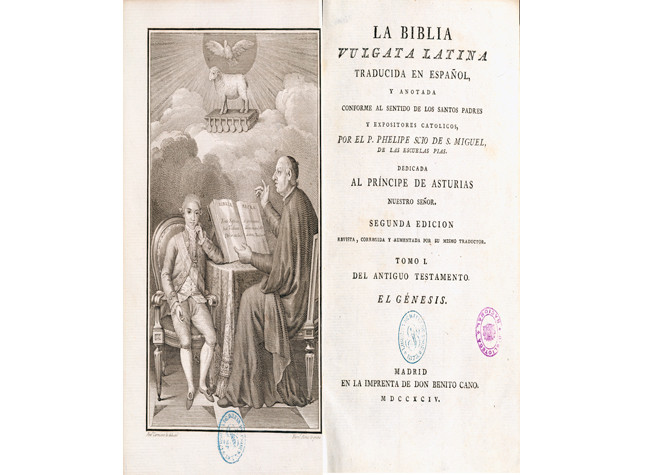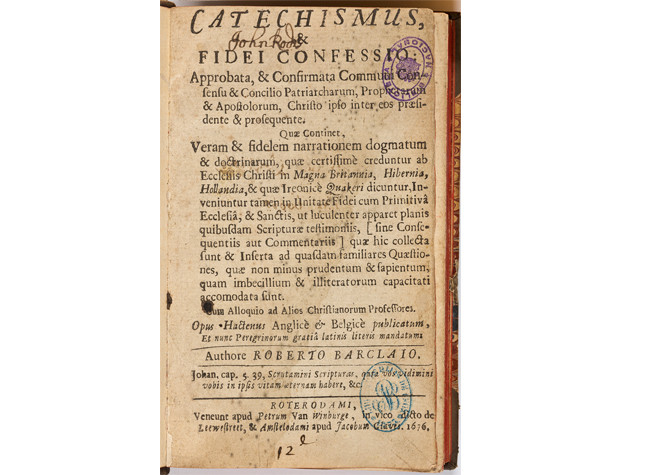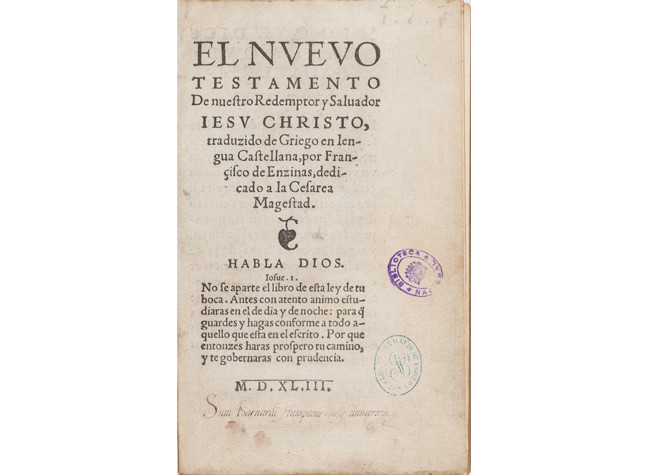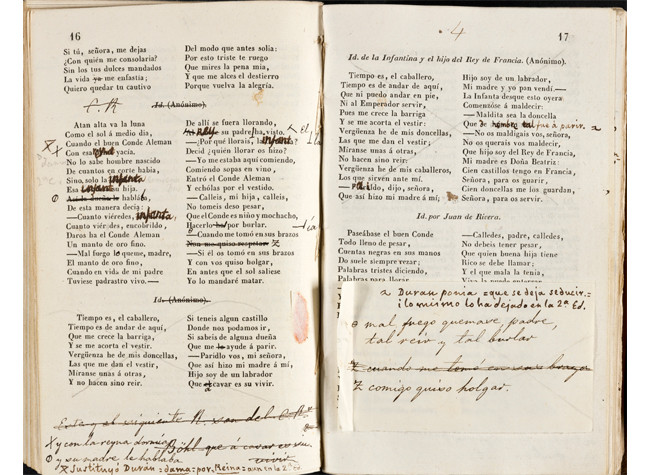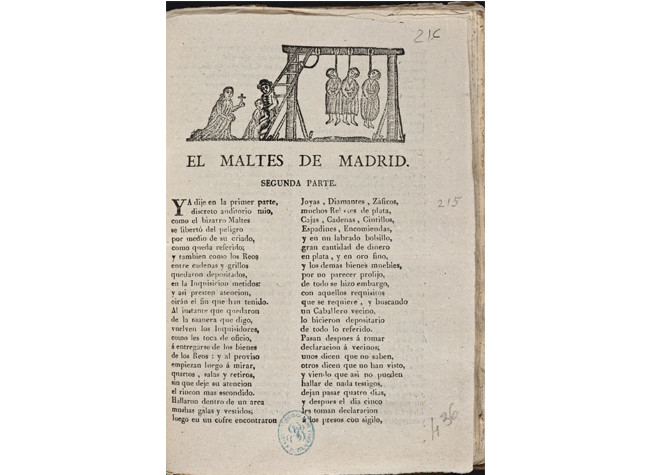Usoz
This collection identified by the symbol Or contains the library comprising the scholar and bibliófilo Luis de Usoz and rio, which was donated by his widow, Maria Sandal of Arratia Acebal and, in 1873.
Their interest in the work of the authors of the renaissance and golden century, by the bible studies, and especially for the works of heterodox led him to find copies of their works, assembling a library Only for the study of protestantism in Spain. In many of the more than 11,000 volumes which make up this library appear annotations, his hands or by friends who helped him in the identification and acquisition of copies.
Born in the Virreinato del río de la Plata in 1805, into a family of enlightened, Luis de Usoz was professor of hebrew university of Valladolid and provided free lessons of this matter at the Ateneo madrileño, coinciding with the arabistas Serafín Estébanez calderón and Pascual of Gayangos, with which it shared the concern for the recovery of Romances. Despite being one of the greatest scholars of their time, Luis de Usoz and rio remains a character enigmatic and unknown, which barely see spanish ochocentista historiography.
Ignorance of this most distinguished bibliófilo is mainly due to its decision to remain anonymous to conceal their actual status of collector and editor of books prohibited, his close relationship with heterodox characters like George Borrow or english Benjamin Wiffen quaker and the need to hide the multi-track used to fund from spain large expenditures that generated editorial his great work, the collection of reformers Old Spaniards (RAE). The objective of the msar was locate and edit the texts of authors censored or banned in the 16th century in Spain of the first Reform. But this extraordinary library is not just a set of works prohibited or subject to censorship; Usoz the also provided an important collection of romances, many of them forgotten or transmitted orally, numerous grammars, dictionaries and glossaries of neglected voices, copies Only, some maimed or fixed so far as to contradict the message of the author and handwritten copies of works on the verge of disappearing.


